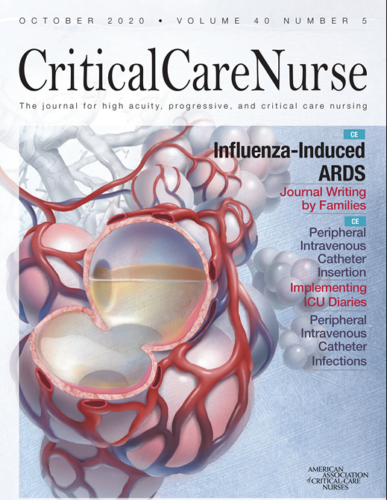
School of Nursing alumna Hannah Nakashima and associate professor Cara Gallegos have published Journal Writing by Families of Critically Ill Patients: an Integrative Review in the October edition of the open-access journal Critical Care Nursing.
Nakashima graduated from Boise State’s School of Nursing in December 2018, having worked with Gallegos as an undergraduate research assistant for two-and-half years during her degree. Gallegos’ previous and current scholarly work includes studying stress and coping in parents of critically ill and chronically ill children; Nakashima works for Healthwise in Boise, developing patient education material to ensure patients can care for illnesses and healing injuries at home upon hospital discharge.
This study examined whether journal writing is an effective coping mechanism for family members during a loved one’s hospitalization in a neonatal (newborn), pediatric or adult intensive care unit (ICU).
“Anxiety, stress and depression are common emotions when a family member, regardless of their age, is in an ICU… In one study, 33 percent of fathers and 9 percent of mothers of patients in a [neonatal/newborn intensive care unit] met the criteria for PTSD. Similarly, parents of children in a [pediatric intensive care unit] report extreme anxiety, high stress, and PTSD. Finally, relatives of adults in an ICU also experience substantial psychological distress, including symptoms of generalized anxiety disorder, depression, panic disorder, PTSD, and complicated grief [as cited in the Journal of General Internal Medicine and Chest, the official publication of the American College of Chest Physicians]. Several interventions [to meet family needs] such as support groups, verbal and written information, and open visitation effectively decrease stress among family members. Such interventions, however, usually require extensive resources that families often are not able to access.”

Journaling is a considerably more accessible intervention, requiring no travel and little cost or resource investment, and individuals can work around their own schedules. Nakashima and Gallegos note that existing research says journaling by ICU patients helps reduce anxiety, depression, and PTSD after discharge. They chose to conduct an integrative review to examine journaling in family members of patients, combining information from eight published studies in order to include a greater number and variety of data points. Total, this review included 426 family members of critically ill patients.
“Overall, writing in a diary seems to be beneficial for reducing psychological distress and posttraumatic stress disorder, but none of the studies found that it significantly decreased anxiety or depression. The findings of this review suggest that having family members of critically ill patients write in a diary is a simple and cost-effective intervention that may improve their psychological outcomes. Critical care nurses are in a position to educate families about the potential benefits of writing in a diary. Future research would be valuable regarding the benefits of using a diary and an optimal approach for doing so in this population.”
